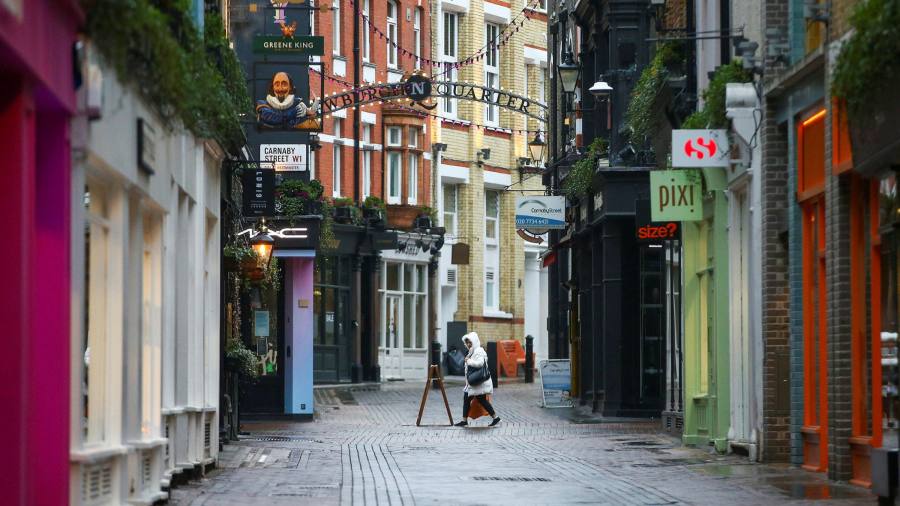[ad_1]
Retail sales in Great Britain fell sharply and more than expected in January as coronavirus lockdown restrictions continued to inflict pain on the high street.
The volume of retail sales slid 8.2 per cent last month compared with December, the Office for National Statistics said on Friday.
The drop was much larger than the 4.1 per cent fall in November, when England was last in lockdown and represented a bigger contraction than the 2.6 per cent dip forecast by economists polled by Reuters.
Compared with the same month a year ago, sales were down 5.9 per cent, the first annual contraction since June.

Jonathan Athow, deputy national statistician for economic statistics at the ONS, said: “The latest national lockdown led to a sharp monthly fall in January’s retail sales, with April 2020 the only month on record to see a bigger slump. Department and clothing store sales were particularly affected this month.â€
There were further indications last month that businesses and consumers were adapting to Covid-19 restrictions in particular thanks to internet shopping.
Online sales accounted for 35 per cent of January’s total, the highest proportion on record. This was up from 29.6 per cent the previous month and 19.5 per cent in the same month last year.
The share of ecommerce rose across all store types, reaching a historic high of 12 per cent in food stores.
The value of online sales doubled compared with January last year in household goods, department and food stores.
Food store sales — both online and in-store — continued to rise as essential shops remained open and consumers switched from services, such as bars and restaurants, to buying food and drinks.
But total sales in department stores fell 15 per cent and spending in clothing stores tumbled by 35 per cent in January compared with the previous month.
Clothing stores also lost business to online retailers and supermarkets with the proportion of all clothing sold in supermarkets rising sharply in January and in the previous lockdowns, according to the ONS.
Maddy Alexander-Grout, founder of the small business national discount scheme MyVIPCard, said that many local non-food small retailers “are not just close to shutting up shop but are also mentally exhaustedâ€.
Lynda Petherick, head of retail at the consultancy Accenture, said: “Retailers will be holding their breath for the government’s road map out of lockdownâ€, which could see non-essential stores remaining closed for weeks.
There are some signs that consumer sentiment has improved since January. The UK consumer confidence index has risen to an 11-month high, according to research company GfK, due in part to the quick rollout of vaccines.
Economists expect a rebound in sales and output in the spring, “but the pandemic-induced switch to online retail is unlikely to be reversed, posing ongoing challenges for the high streetâ€, said James Smith, economist at investment bank ING.
Many retailers are thus calling for more government support in the Budget on March 3.
Aled Patchett, head of retail and consumer at Lloyds Bank, said that non-essential retailers would be “looking for support and reassurance from the chancellor’s upcoming Budget — be it the extension of existing measures or the reform on business rates that the sector has long called forâ€.
Lisa Hooker, consumer markets leader at the consultancy PwC, said: “Retailers will be hoping for extensions to government support, such as the extension of the furlough scheme beyond April, and extension of the commercial property moratorium on evictions and the business rates holiday beyond March, as has already happened in Scotland.â€
[ad_2]
Source link





